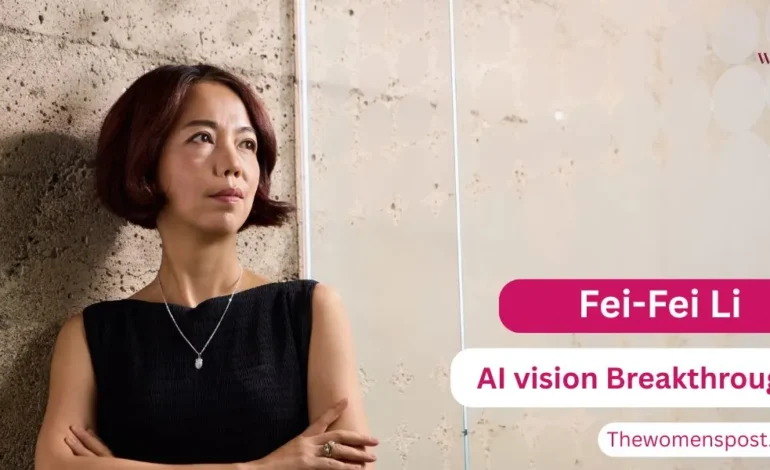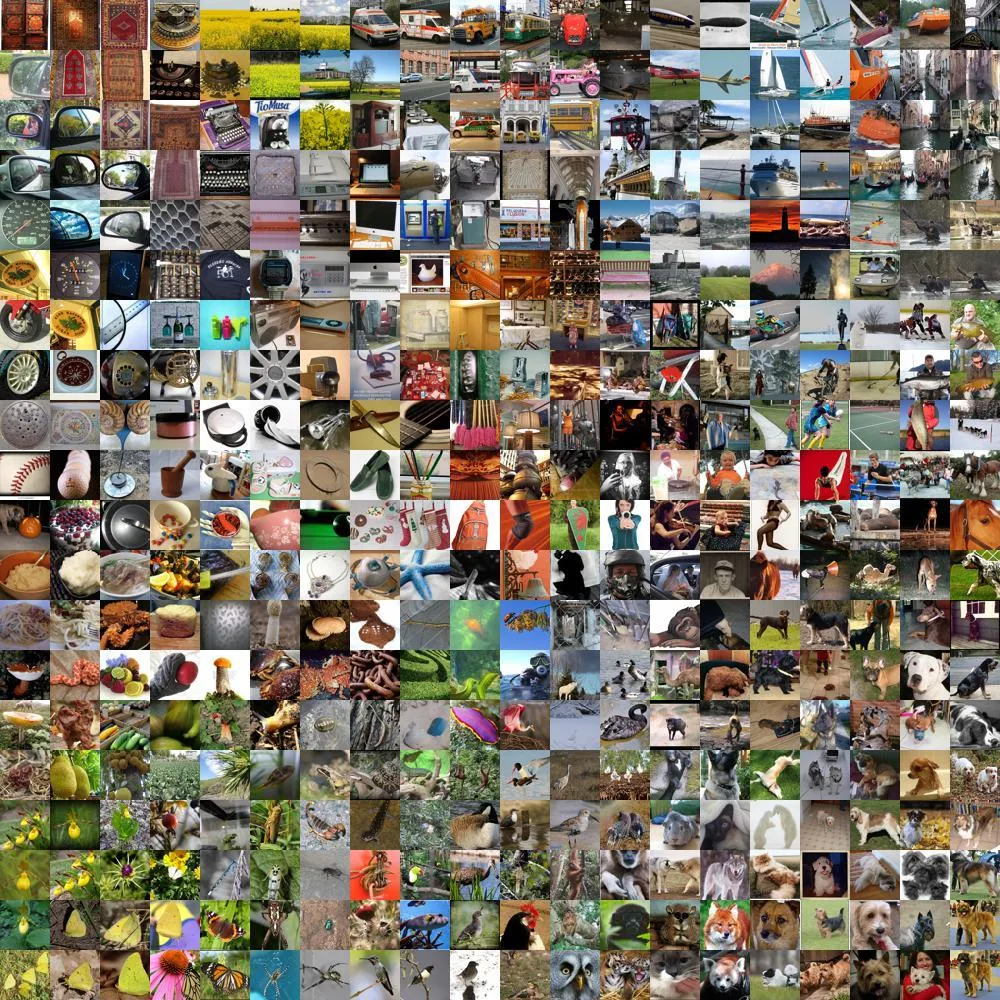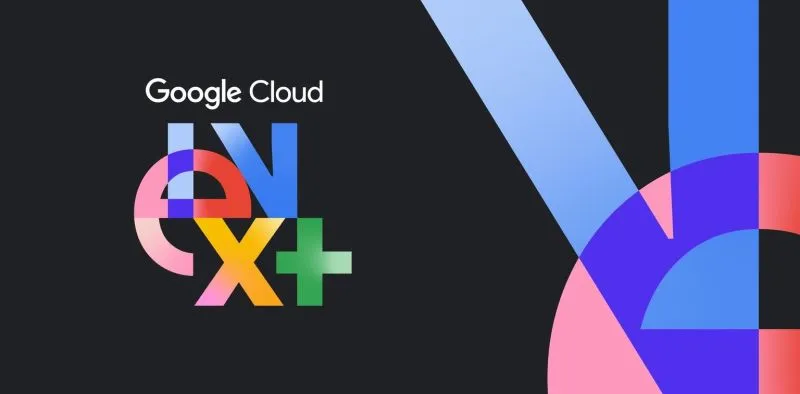Fei-Fei Li: The Woman Who Taught AI to See

In today’s world of artificial intelligence, one woman stands out as a true leader and visionary—Fei-Fei Li. From a teenager who moved from China to the U.S. without speaking English to a scientist who helped shape how AI “sees” the world, her story is inspiring, powerful, and full of impact.
This blog tells the full story of Fei-Fei Li, covering her early life, her education, her major contributions to AI, and how she continues to influence the tech world in 2025.
Early Life: From Beijing to New Jersey
Fei-Fei Li was born on July 3, 1976, in Beijing, China. Her family later moved to Chengdu, but when she was 16 years old, her parents decided to send her to the United States for better opportunities.
Moving to the U.S. was not easy. She settled in Parsippany, New Jersey, where she had to learn English quickly. She also worked part-time at a dry cleaner and helped her family financially. Despite these hardships, Fei-Fei focused on her studies and dreamed big.
Education: Physics to Artificial Intelligence
Fei-Fei Li earned a bachelor’s degree in physics from Princeton University in 1999. After that, she went on to get her Ph.D. in Electrical Engineering from Caltech (California Institute of Technology) in 2005. During this time, she became deeply interested in how the brain processes images—and how computers might be able to do the same.
Her early research focused on computer vision, which is how machines can be trained to understand and analyze visual images, just like humans do.
The Big Break: Building ImageNet

Also Read: Marina Abramović – The Grandmother of Performance Art
Fei-Fei’s biggest contribution to AI came in 2007 when she started working on a project called ImageNet. At that time, computers were not very good at identifying images. They might recognize a cat or a dog—but only under simple conditions. Fei-Fei believed that machines could learn better if they had access to a huge, labeled image database—and she decided to build it.
Over several years, she and her team created ImageNet, a database with over 14 million images. Each image was labeled by human workers to show what it contained. This database changed everything.
In 2012, researchers used ImageNet to train a deep learning model that suddenly performed way better than anything before. This was the turning point for modern AI and computer vision. Many call it the moment when AI learned to “see.”
Teaching The Next Generation
Fei-Fei Li joined Stanford University in 2009 and became a professor in computer science. She also became the director of the Stanford AI Lab. There, she taught popular courses like CS231n (Deep Learning for Computer Vision) and worked with students and researchers from all over the world.
In 2019, she co-founded the Stanford Human-Centered AI Institute (HAI). The goal of this institute is to make sure that AI is built not just for machines—but for people. She believes AI must be ethical, fair, and responsible.
Stepping into Industry: Google Cloud and Beyond

Also Read: How Women Get Ahead in Male-Dominated Tech Fields
In 2017, Fei-Fei took a leave from Stanford to work at Google Cloud as the Chief Scientist for AI and Machine Learning. While there, she helped create tools like AutoML, which made it easier for non-experts to use machine learning.
However, during this time, she also faced criticism for Google’s involvement in Project Maven, a U.S. military program that used AI. Fei-Fei later pushed for ethical boundaries in the use of AI and returned to Stanford in 2018.
Helping The Underrepresented: AI4ALL
Fei-Fei saw that not everyone had access to the world of AI. So in 2017, she co-founded a nonprofit called AI4ALL, which helps girls, students of color, and low-income communities learn about artificial intelligence. The goal is to make AI more inclusive by training a diverse new generation of leaders.
Fei-Fei Li’s Startup: World Labs

Also Read: Who, How, When, Where Know Everything About Hand In Hand Event, We Celebrate 50 Years
In 2024, Fei-Fei took another big step—she launched her own startup, called World Labs. The company is focused on spatial intelligence, helping AI better understand the physical world around it.
In just a few months, World Labs raised $230 million in funding and became a unicorn startup, valued at over $1 billion. As of 2025, Fei-Fei is leading World Labs while continuing her teaching and research part-time at Stanford.
Awards And Recognition
Fei-Fei Li’s work has been recognized all over the world. Some of her major honors include:
- Queen Elizabeth Prize for Engineering (2025)
- VinFuture Prize (2024)
- Elected to the National Academy of Engineering
- Time Magazine’s 100 Most Influential People
- Numerous honorary doctorates, including from Yale
She has spoken at TED, the World Economic Forum (Davos), and has advised government bodies, including the United Nations.
Fei-Fei Li’s Philosophy: Human First, Technology Second
What makes Fei-Fei Li special isn’t just her scientific work. It’s also her belief that AI should be built to help people, not replace them. She often says, “We must put human dignity at the center of AI development.”
She continues to speak about the importance of ethics, diversity, and education in shaping the future of artificial intelligence.
Challenges She Faced
Like every successful person, Fei-Fei also had challenges:
- Adjusting to life in the U.S. as a teen with limited English
- Building ImageNet with limited funding and support
- Facing criticism over AI’s role in military use
- Speaking out about bias and ethics in the tech industry
But through every obstacle, she stayed committed to her mission of creating a better world through technology.
Final Thoughts
Fei-Fei Li’s journey from a high school student in New Jersey to one of the most important voices in AI is truly inspiring. She is a scientist, teacher, leader, and changemaker. Her work in computer vision, ethics, education, and innovation will continue to impact millions.
As AI continues to grow in 2025 and beyond, Fei-Fei Li reminds us of the most important lesson: technology must serve humanity—not the other way around.









